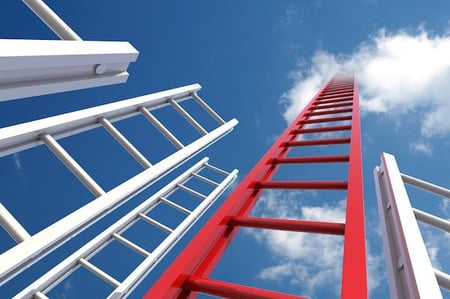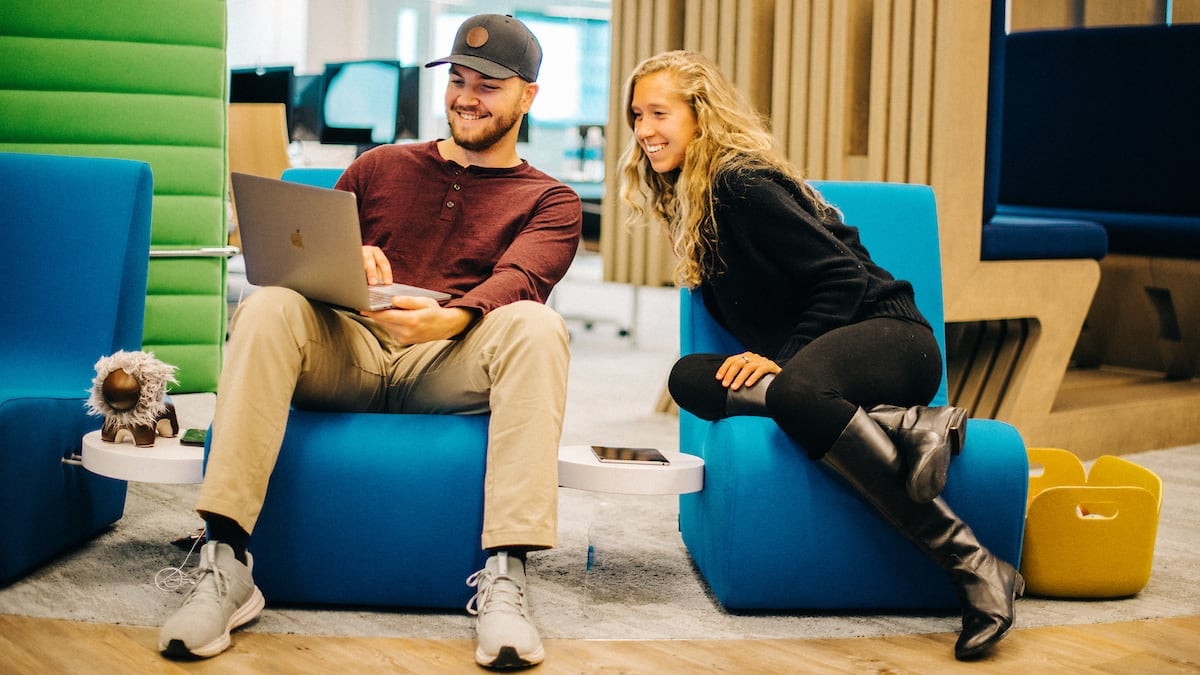7 min read
Millennials don’t get an easy time of it, do they?
They’re a generation we’re still getting our heads around. The way they’ve been brought up – and the way they live their lives – demands a different approach to rewarding and recognising them.
Things have also changed in the reward and recognition industry itself, with it being very different to when I first entered it over 20 years ago. First and foremost is the terminology we use. Terms such as reward and recognition were not terms we chatted about over a cup of coffee (I mean a double shot, low-fat, no-foam latte), it was compensation, and it was benefits, and that was that.
We spoke about attraction and retention, and possibly about motivation, but never did we utter the word engagement.
This new terminology has changed how we think, how we develop programmes, and ultimately the impact we can make to our employees and to our organisations.
Below I’ve highlighted three changes that I’ve seen, sharing the “in the past,” so what I’ve done in the past and “now,” so what I’m doing now at my company, Reward Gateway.
The evolution of HR technology in employee engagement
The first change I’d like to mention is, of course, technology, which has completely changed what we do, and how we do it. Things we take for granted now, including computers that are small, fast and reliable (you could have made a pot of coffee in the time it took to run some programmes we used in the past), and technology such as internal communications platforms and mobiles that have helped us communicate to even an offline workforce. Together, they help us do things faster and in a more professional and business-focused way.
To really illustrate how far we’ve come, I love this example from one of my favourite talk shows, Ellen:
And it’s not just the technology itself, but how we are able to integrate it into our strategies and approaches. An example of this was when we were rolling out our new benefit programmes, and were developing our communication strategy. The team of millennials I was working with suggested that we create a communication objective that everything had to be "Instagrammable."
In other words, everything had to be so bite-sized and so impressive that people would want to take pictures of it and put it on Instagram. This is something I never would have considered in the past, and highlights both how technology has allowed us to communicate in different ways and, at the same time, how the expectations of millennials has pushed us to embrace technology in new and different ways to meet their expectations, especially when it comes to communicating employee perks.
| In the past | Now |
|
I stuck to tried and true quarterly newsletters that were mailed to homes or dropped at employees’ desks. The challenge was that often by the time the newsletter had come out, the news would no longer be relevant or would have changed. |
Communications have evolved to be almost instantaneous using communication technology and communication platforms. |
Tip: Find ways to use technology to help you meet the needs of your workforce, leveraging it to deliver your reward and recognition programmes and to communicate to your workforce in a more meaningful and effective way.

Millennials and employee recognition
Another significant change has been the explosion of recognition, and launching recognition programmes in the workplace. Going back to when I started in the workplace, recognition was not a part of our vocabulary and not something we formally or informally did.
Now, it’s changed from being a “nice to have” to a “must have,” which is especially true when it comes to millennials.
Often called the “trophy generation” as they’ve been brought up receiving a trophy for everything and anything, millennials have different expectations for recognition than previous generations.
They crave feedback for their behaviours and their actions, and have grown up with recognition being a big part of providing this, so it’s expected in the workplace.
| In the past | Now |
|
I remember the first recognition programme we put in place at a previous company, which was a retailer. Each manager was given a pad of paper to use for writing recognition messages. They gave one copy to the employee and put the other copy in a box in the office. Each week a name would be picked from the box, called out at a meeting, and given a gift voucher. |
Employee recognition technology is “tried and true” as a great way to put recognition programmes in place. At Reward Gateway I recently launched an employee recognition programme which we call “MORE,” standing for “Moments of Recognition Everyday.” The programme has four elements that work together to deliver continuous employee recognition moments. |
Tip: Find ways to make recognition a part of your culture and ways of working. Even if you don’t have the budget for an employee recognition programme, there are things you can do that cost little to nothing. I saw one company create a recognition wall with Post-its, which costs nothing more than, well, a stack of Post-its. Whatever you do, find ways to make your employees feeling appreciated and noticed.

The value of choice in employee rewards
The final change I’d like to highlight is that of choice, which reflects the shift away from a “one-size-fits-all” approach to rewards. It’s no longer a case of “I have a healthcare plan and a pension scheme and that’s it.” Millennials have grown up in a world with so much choice already, so it’s not a surprise that they expect to be given choices in the workplace, and when it comes to deciding which rewards are right for them. They’re going to want to pick for themselves.
After all, they pick everything else in their lives.
Take a step back and think about your demographics, the culture you’re trying to create and your company values to help you to pick the right mix of rewards that will fit together for your millennials — and for everyone else, too!
| In the past | Now |
|
In the past, the reward choices I offered my employees were limited and, based on how many of them opted for them. They weren’t really appreciated or valued. |
I like to introduce what I call “meaningful choice” to our employees. At Reward Gateway I added “choice” as one of our five employee reward principles, as I wanted it to stay top of mind in our future reward programmes. Our benefits programmes include holiday trading, a wellbeing allowance, parental and family leave and employee discounts to put decision-making in the hands of our employees. |
Tip: Find ways to introduce choice into your reward programmes. This is important for millennials, but also with four or five generations in the workplace at one time, it’s even more important to meet their diverse needs.
Let me leave you with a box of chocolates (not literally, unfortunately). A millennial would expect three things: that the chocolates are new and fresh, that there will be variety, and they will have the chance to pick the chocolates for themselves.
Don’t just randomly throw pieces of chocolate out there. Making the perfect box of chocolates is how you will engage your millennials today and in the years to come.

 Debra Corey
Debra Corey

